Quotes & Sayings About Japanese Internment Camps
Enjoy reading and share 6 famous quotes about Japanese Internment Camps with everyone.
Top Japanese Internment Camps Quotes
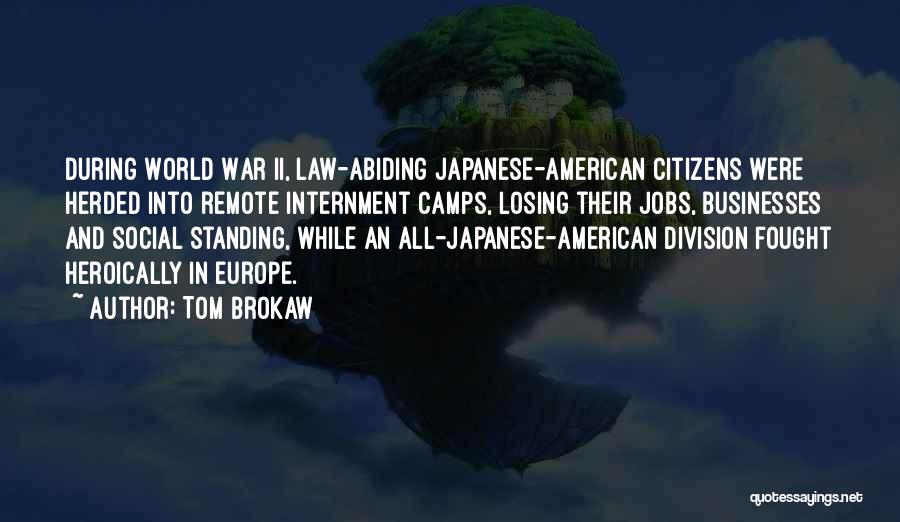
During World War II, law-abiding Japanese-American citizens were herded into remote internment camps, losing their jobs, businesses and social standing, while an all-Japanese-American division fought heroically in Europe. — Tom Brokaw
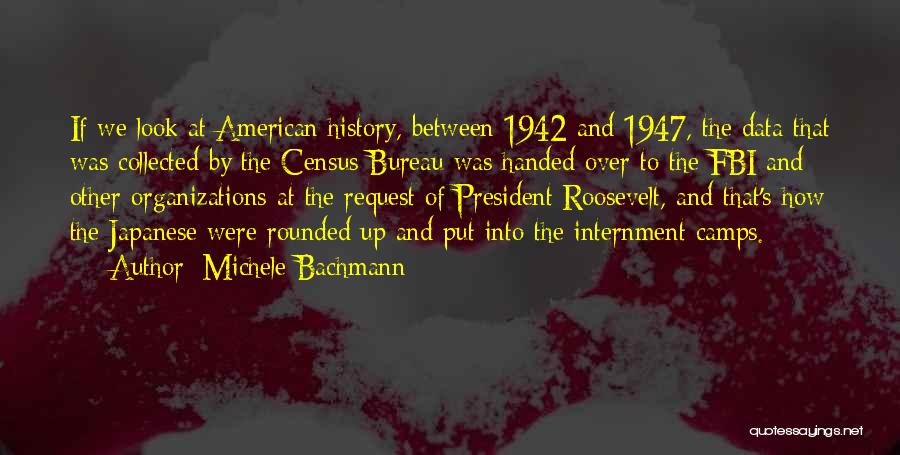
If we look at American history, between 1942 and 1947, the data that was collected by the Census Bureau was handed over to the FBI and other organizations at the request of President Roosevelt, and that's how the Japanese were rounded up and put into the internment camps. — Michele Bachmann
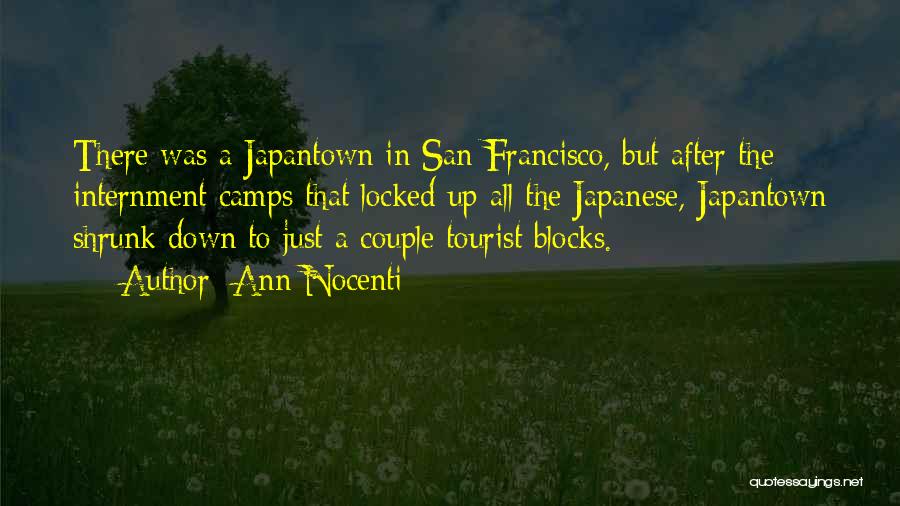
There was a Japantown in San Francisco, but after the internment camps that locked up all the Japanese, Japantown shrunk down to just a couple tourist blocks. — Ann Nocenti
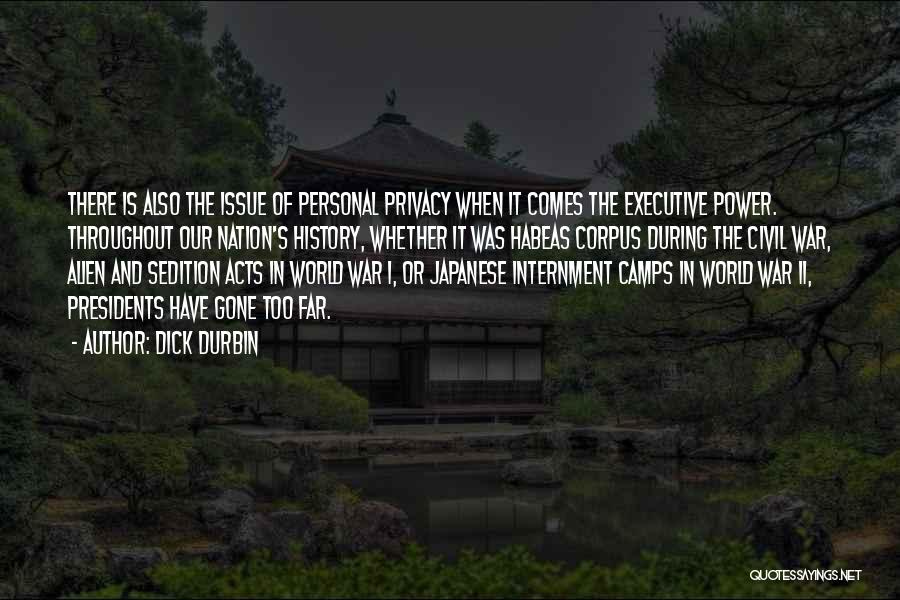
There is also the issue of personal privacy when it comes the executive power. Throughout our nation's history, whether it was habeas corpus during the Civil War, Alien and Sedition Acts in World War I, or Japanese internment camps in World War II, presidents have gone too far. — Dick Durbin
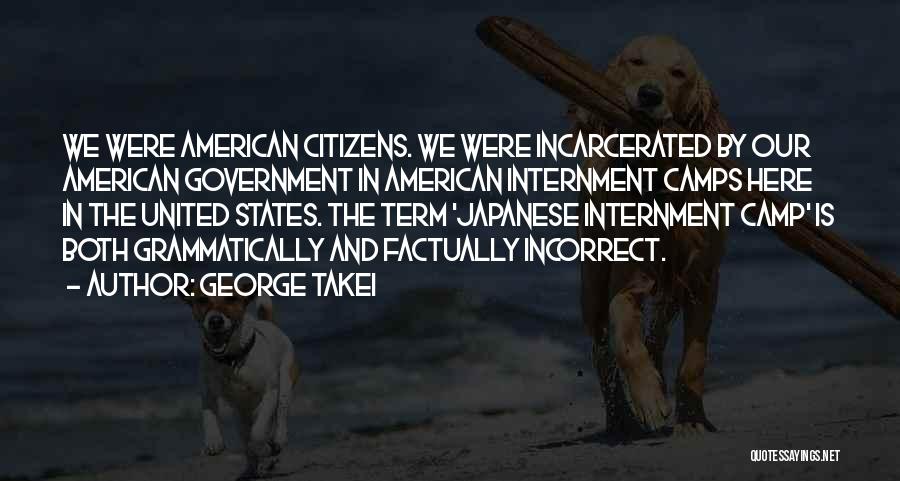
We were American citizens. We were incarcerated by our American government in American internment camps here in the United States. The term 'Japanese internment camp' is both grammatically and factually incorrect. — George Takei
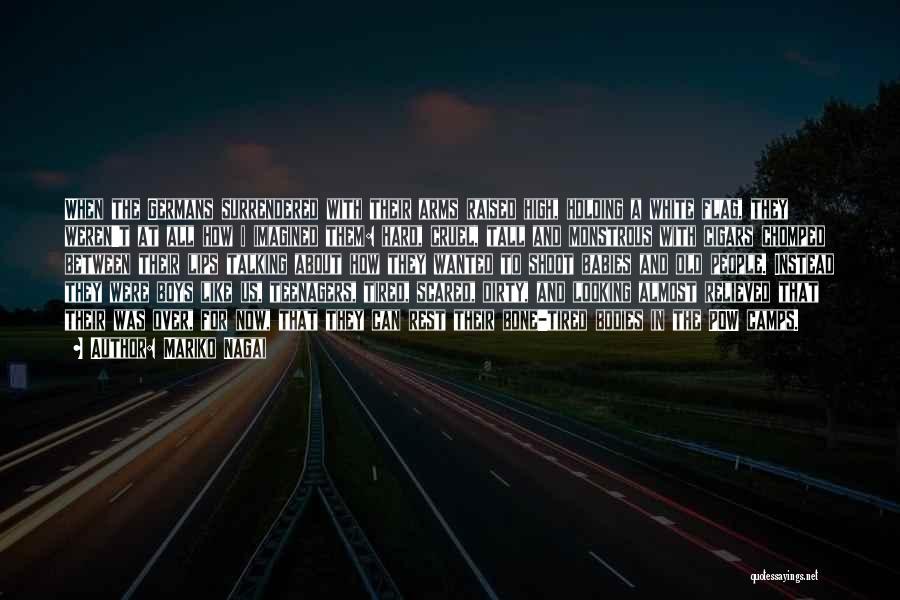
When the Germans surrendered with their arms raised high, holding a white flag, they weren't at all how i imagined them: hard, cruel, tall and monstrous with cigars chomped between their lips talking about how they wanted to shoot babies and old people. Instead they were boys like us, teenagers, tired, scared, dirty, and looking almost relieved that their was over, for now, that they can rest their bone-tired bodies in the POW camps. — Mariko Nagai





